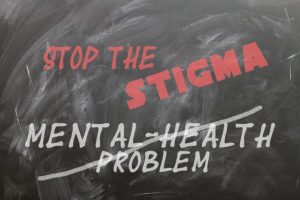Mindfulness: a modern day necessity?
If there’s one thing that citizens of the 21st century can agree upon, it’s that modern life is a bit of a minefield. Following the eat/sleep/work repeat pattern is no more, but rather we try to achieve perfection in all areas of our lives. We are bombarded by images and advice about what we should and shouldn’t eat, how we should and shouldn’t feel, what we should wear, how much we should exercise, how we should raise our children…
It’s a wonder more of us don’t hide away from the terrifying expectations of modern society. And it’s certainly become easy for us to rush through daily life without stopping to notice anything around us. Yet, I’d imagine that this disconnection does serious damage to our mental wellbeing.
A recent summary offered by the Mental Health Foundation revealed that each year in the UK 1/4 of us experience a mental health problem. Yet 3/4 receive no treatment.
 It’s extremely tricky to tackle such inherent issues: due to the stigma surrounding mental health, many worry about being judged, refuse to admit that they’re not feeling 100% and avoid getting help.
It’s extremely tricky to tackle such inherent issues: due to the stigma surrounding mental health, many worry about being judged, refuse to admit that they’re not feeling 100% and avoid getting help.
Unfortunately, the media only seems to reinforce this stigmatisation: according to mental health charity Time to Change, currently almost 1/3 of national newspaper coverage about mental health focuses on danger to others and strange behaviour. Advice, support and sensitivity seem to be rather lacking.
But there are a number of organisations campaigning to change this. The Duke and Duchess of Cambridge, and Prince Harry are spearheading Heads Together, which aims to change the national conversation on mental health and provide vital help for people with mental health challenges. Just last month, while hosting an event for said campaign, Prince Harry spoke openly of his own struggles around the death of his mother. He told the BBC the event was to highlight that anyone can suffer from mental health issues.
So what can the rest of us regular humans do? The answer is simple: it starts with us, and our own mindfulness.

According to NHS research, our mental wellbeing is vastly improved when we:
- Connect – develop relationships with family, friends, colleagues, neighbours
- Learn – stimulate our mind and senses
- Keep active – listen to our bodies, find an activity we enjoy, make it a part of our routines
- Be mindful – be more aware of the present moment, including our thoughts and feelings as well as the world around us. Awareness = mindfulness. It can positively change the way we feel about life and how we approach challenges.
It is important to clarify that, as Professor Stewart-Brown of Warwick University stipulates, “good mental wellbeing does not mean that you never experience feelings or situations that you find difficult. But it does mean that you feel you have the resilience to cope when times are tougher than usual.”
Modern life is tough. And it’s far from easy to stop, take a breath, reassess. I know I’m as guilty as the next person of putting myself under excess pressure. But with increasing support, awareness and access to everyday tools, I hope to train myself to be more mindful. Anyone can learn and practise mindfulness, so we can all start to break out of this cycle.
- Written by Annabelle D. Intern.

